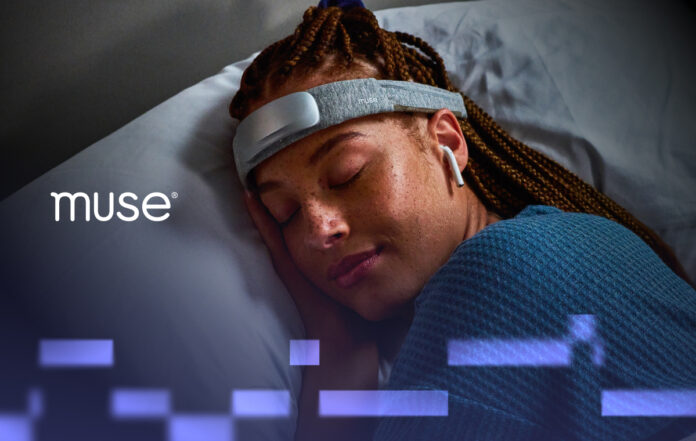Toronto– Muse, the neurotechnology company known for consumer EEG headbands, has taken a major leap into clinical-grade health intelligence with the launch of Muse S Athena, a groundbreaking wearable that integrates EEG, fNIRS, and SpO₂ monitoring into a single, lightweight device. The launch positions Muse as a leader in AI-driven brain health diagnostics, moving beyond wellness into the realm of real-time, lab-quality insights from the comfort of home.
Powered by a deep-learning architecture modeled after large language models like ChatGPT, Muse’s Foundational Brain Model (FBM) translates raw neural signals into actionable data. This capability enables Athena to deliver expert-level sleep staging, cognitive monitoring, and early anomaly detection in real-world settings—without the need for traditional lab-based equipment.
“What GPTs did for language, we’re now doing for the brain,” said Chris Aimone, co-founder and Chief Innovation Officer at Muse. “Our foundational model reveals neural patterns that are both highly individualized and broadly applicable, unlocking a new era of personalized brain health.”
The Muse FBM is trained on over 1 billion minutes of brain activity collected from more than 16 million sessions, making it the largest longitudinal EEG dataset in the world. This extensive dataset spans meditation, sleep, and cognitive states, allowing the model to adapt to varied contexts and deliver real-time insight with clinical-level precision. When integrated with Athena’s multimodal sensors, the platform provides a comprehensive view of the user’s brain state, blood oxygen levels, and neural responsiveness.
Muse’s breakthrough in sleep monitoring has been validated through comparisons with expert sleep scorers using PSG-labeled datasets. The Athena headband delivers not just accurate sleep staging, but also captures fine-grained architecture of sleep—macro and micro—despite environmental noise. This level of detail enables both researchers and consumers to track sleep health more precisely and consistently over time.
“With Athena, Muse transitions from a consumer-focused brand to a clinical-grade platform supporting research, decentralized trials, and the future of home diagnostics,” said Jean-Michel Fournier, CEO of Muse.
One of the standout features of Athena is its ability to measure SpO₂ levels from the forehead—a major innovation for sleep apnea and respiratory research. Unlike traditional fingertip sensors, the forehead placement offers quicker response times and more stable overnight readings, essential for identifying sleep-disordered breathing patterns.
Already in use in studies on long COVID, stroke recovery, cognitive decline, and digital therapeutics, Muse’s AI platform supports plug-and-play applications for pharmaceutical research, health tech integration, and large-scale data modeling. The company envisions its system as a foundational layer connecting biosignal-rich wearables to intelligent diagnostics at the intersection of consumer wellness, clinical research, and precision medicine.
“Muse sees brain activity not as a static metric, but as a living, contextual language,” said Nadia Kumentas, Muse’s Chief Marketing Officer. “Through AI, we can interpret that language—and transform it into meaningful, real-world health insight.”


